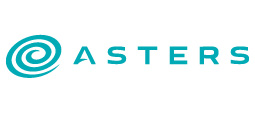On 1 May 2024, the Ministry of Energy of Ukraine's Order No.136 as of 1 April 2024, came into effect, cancelling Order No.206 as of 15 June 2022. This change has significant implications for the renewable energy sector in Ukraine, as detailed below.
Regulation During Martial Law in Ukraine: Ambiguity in Interpretation
Since the onset of the full-scale invasion, Ukraine has enacted several laws and regulations to ensure the smooth and stable operation of its electricity market during martial law, namely:
- Order No.140 as of 28 March 2022 "On Settlements in the Electricity Market"
- Order No.206 as of 15 June 2022 "On Settlements with Producers under the "Green" Tariff"
These orders established advance transfer rates for payments for electricity generated from renewable sources. Specifically, Order No.140 set the following rates based on the weighted average "green" tariff for 2021:
- 15% for Solar Power Plants (SPPs)
- 16% for Wind Power Plants (WPPs)
Full payments were to be made proportionally, depending on the availability of funds in the Guaranteed Buyer's account, as per NEURC Resolution No.641. Upon the expiration of Order No.140, Order No.206 increased the advance payment rate to 18% for both SPPs and WPPs, allowing for continued electricity generation from alternative sources during the crisis. This was intended to support the industry and ensure a minimum level of payment to producers.
However, the Guaranteed Buyer interpreted Order No.206 as removing its obligation to make full payments to producers under the "green" tariff, leading to significant debt and several lawsuits to recover funds, including 3% per annum interest and inflationary costs on the debt.
Landmark Decision of the Commercial Court of Cassation
Court rulings on Order No.206 had been inconsistent: some courts supported renewable energy producers, stating that the order did not exempt the Guaranteed Buyer from making full payments, while others sided with the Guaranteed Buyer, interpreting the order as capping payments at the specified advance rates.
However, on 11 April 2024, the Commercial Court of Cassation resolved this ambiguity in case 910/9100/22.
The court concluded that Order No. 206 was intended to regulate the distribution of funds specifically for advance payments and did not absolve the Guaranteed Buyer from the obligation to make final payments to ensure 100% payment for the supplied electricity.
Three weeks after this decision, the Ministry of Energy's order cancelling Order No. 206 came into force.
Further Challenges and Uncertainties
The cancellation of Order No.206 marks a crucial step for the renewable energy industry. Order No.206 not only failed to stimulate the sector's development but also fostered ambiguity, debt accumulation, and extensive litigation.
We hope that rescinding Order No.206 will resolve the settlement issues between the Guaranteed Buyer and producers under the "green" tariff, which have persisted since the full-scale invasion began. However, significant challenges remain. It is uncertain how the Guaranteed Buyer will manage its relations with producers, considering the existing debt and ongoing litigation. The crucial question is whether the cancellation of this order will ensure full payment to producers or if they will still need to pursue legal action to protect their rights.
Moreover, given the Guaranteed Buyer's stance in court and the lack of official comments from government authorities regarding the impact of the cancellation, the probability of debt repayment for previous periods appears to be very low.
By Yaroslav Petrov, Partner, and Kateryna Andarak, Associate, Asters


